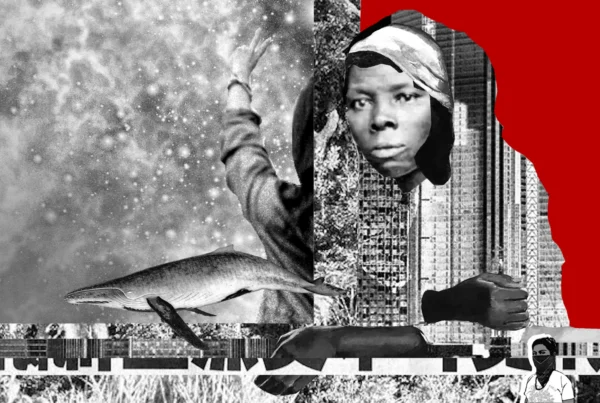By Saswat S. Das and Ananya Roy Pratihar
A call for the Journal of Ecohumanism, Issue 2, invites contributions working to extend ecosophy through decolonial networks, intersecting with Indian and other non-western eco-theologies.
The dense interplay between the multiple strands of eco-criticality in the current times that effectively exposes the ambivalences of state machinery’s eco-political intervention culminates in yielding ecosophical assemblages that works with a new ‘conceptual grammatology’, a grammatology that could be turned into an effective praxis to bring about multiple forms of eco-healing and create effective ways of existing in a ‘qualitative diversity’ beyond anthropocentrism. However, it is the ethics of post-structuralist micropolitics that drives these assemblages.
So, the relation these assemblages bear with humanism is productively disjunctive, inclined towards ‘difference engineering’ the latter into an expanding problem field, rather than treating it as a dispensable metaphysical abstraction. As a result, humanism gets to persist in these assemblages as hauntological traces or better inexpugnable stains, brooding over latter’s ecosophical reconstruction of the Bio. Moreover, if the current epistemology stands impregnated with a desire to remove this invisible human mediation it is because the current pandemics we are enmeshed in has generated an aggressive form of desire to exorcise the vestiges of the human.
The attempt to work out a form of a-humanism that we encounter in epistemology is a fall out of this desire. However, the need of the times is to broaden and diversify this attempt by coupling the radical western epistemology with ongoing processes of decolonization. This is a project that demands not only provincial forms of decolonization expressed by Western epistemology’s drive towards a-humanism, but a kind of transversal wedding between radical western epistemology and non-western parallax views.
However, except a few random attempts by some Western thinkers to work out semblances of decolonial enquiry by inventing a form of a-humanism engaging with minor positionalities or ‘thresholds’ of epistemology none of what we get encounter as eco-critical interventions or ecosophical assemblages keenly partake of any form of decolonial enquiry. The Heideggerian concept of self-care or Simondon’s non-anthropocentric approach to technology connect with life promoting process that thinkers such as Levi-Strauss were keen to initiate yet they creatively disjunct from Straussian conviction while reworking anthropocentrism into a redeemable assemblage.
In the current times Bernard Steigler’s “Neganthropocene” and Sloterdjik’s anthropotechnic or anthropotechnogenic exist as paradigms of non-anthropocentric assemblages, but the nuanced non-anthropocentrism they offer stand as problematic fields demanding renewal. Their non-anthropocentrism orient us towards making the earth habitable by providing a homotechnological turn, a turn that is not contra-natural, but co-natural, entrapping both human and non-human—not unlike Deleuze and Guattari’s reconstructive version of non-humanism—in a process of non-linear co-becoming. But what we desire currently are much broader ecosophical “spherological” assemblages that could synthesize differential forms of a-humanism with broader processes of decolonization entailing a sustained interaction with South Asian epistemic and non-epistemic practices.
In this sense, positioning non-western, in particular Indian and Western philosophy in a process of dynamic interactionism is not only the means of working out a broader decolonial framework, but also a way of producing an effective ahumanist radical sensibility that may work towards creating a new Earth devoid of the traces of humanism. The dense overlap that exists between the Western and the Indian eco-theology has been already teased out and archived.
Philosopher Henryk Skolimowski, the proponent of Eco-philosophy, has effectively teased out eco-theological strands of Indian mythology. For him the myth of Shiva happens to be a force which transforms and re-creates the world. Skolimowski holds the view that Shiva’s dance propels towards becoming a dance of healing and infusing the cosmos with a new creative substance and energy. Advaita Vedanta’s concept of Brahman accentuates admiration for all life and for nature as a whole. It is this form of adherence which acts as a ground of any eco-centric philosophy or what we call Deep Ecology. This happens to be a radical strand of Indian philosophy that may not in the outset seem ecological, but by refusing to discriminate between humans, animals, trees, it works out a-humanist tangle. By cutting and combining portions from Western and Indian eco-theology one may work out broader, denser and equally decolonial ecosophical assemblage aptly represented by Sloterdjik’s spherology.
However, the need of the time is to turn them into an effective praxis. Undoubtedly, the dissemination of a range of decolonial ecosophical affectualities among the masses could ensure that they acquire a radical sensibility. But it is only by providing a praxial turn to the broader, expansive and decolonial ecosophical assemblages we work out by connecting with Indian and non-western eco-theology that a transformative ethico-politicality could be worked out. Further with this ethico-political restructuration it may be possible to restructure the current degenerative state of democracy into what Skolimowski in his book Philosophy for a New Civilisation calls ecocracy.
So, in this issue of Journal of Ecohumanism we invite articles that:
- could possibly expose how the model of eco-criticality that the governmental apparatuses routinely works by betraying dense overlap with these apparatuses and overt bio-political and necropolitical agendas.
- creatively map the ways by which western a-humanist Ecosophy seeks to decolonize itself by engaging with cult, magic and minor positionalities lying within its immanent exterior.
- creatively map the limits of Western Ecosophy and come up with a creative art of decolonizing them, a process that entails a radical critique of Western posthumanism, non-humanism and a-humanism.
- could make an attempt to pose a deliberative encounter between western Ecosophy and Indian eco-theology and go on to create decolonial ecosophical assemblages geared to Sloterdjik’s idea of spherology.
- could suggest creative ways of turning these ecosophical assemblages into effective praxis.
- could even connect with other forms of divergent non-western, eco-activist, eco-critical parallax views with the intent of folding them into a critique of current western epistemology’s ecosophical drive that stands vulnerable to appropriation by the phenomenon of ‘green Capitalism’
Editors
Dr. Saswat S. Das is an Associate Professor in the Department of Humanities and Social Sciences, Indian Institute of Technology, Kharagpur, India. He has jointly edited books Taking Place of Language (Peter Lang, 2013) and Technology, Urban Space and Network Community(Palgrave Macmillan, 2022), and Deleuze, Guattari and Global Terror (Edinburg University, December, 2021) He is currently co-editing Deleuze, Guattari and the Global Pandemics (Bloomsbury Publication forthcoming). His book reviews are regularly published in Postcolonial Studies, South Central Review, Cultural Politics, French Studies, and Philosophy in Review.
Dr. Ananya Roy Pratihar is Assistant Professor in Communication Studies at the Institute of Management and Information Science, Bhubaneswar, India. She has jointly edited Technology, Urban Space and Network Community (Palgrave Macmillan, 2022) and currently co-editing Deleuze, Guattari and the Global Pandemics (Bloomsbury Publication, forthcoming). Her book reviews and articles are published in Philosophy in Review, French Studies and Exchanges: The Interdisciplinary Research Journal (University of Warwick).
About the Submissions
You are welcome to submit full-length papers (5000-6000 words), commentaries and book reviews (1000-2000 words). All submissions should follow the latest guidelines of APA style referencing. More information about the style sheet can be found here: [https://journals.tplondon.com/ecohumanism/about/submissions].
All the submissions will be sent to the Editors’ e-mails as well as any queries that you may have:
E-mails: [email protected] / [email protected] / [email protected]
The abstracts’ deadline is until the 5th of March 2022. The deadline for the final papers’ submissions is the 31st of May 2022.







